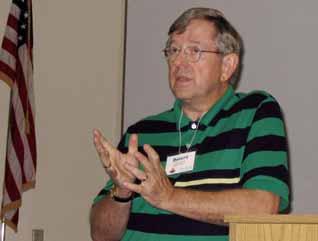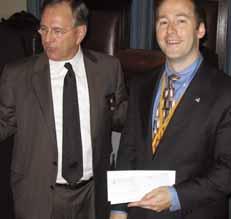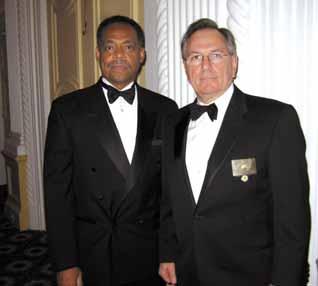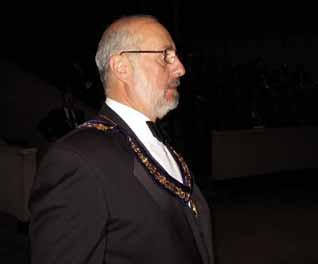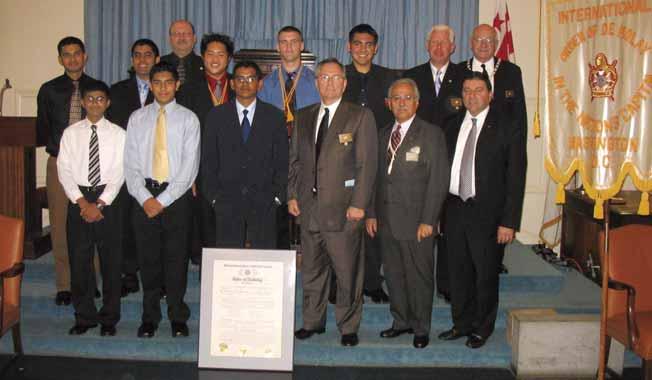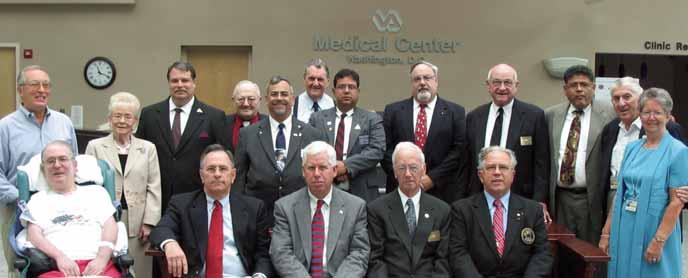
3 minute read
The Grand Lodge — What Is It?
Charles F. Stansbury, C harles F. Stansbury, a Past Master of St. John’s Lodge No. 11, served five terms as Grand Master of Masons Past Grand Master of the District of Columbia, in the Masonic years of 1862, “The Grand Lodge consists of the officers and past officers 1871, 1872, 1873, and 1874. On the occasion of his of the constituent Lodges and their proxies. It is created installation on December 27, 1871, he made an attempt for the purpose of doing for the entire jurisdiction what to clarify for the brethren his understanding of the ties no constituent Lodge could do, hearing and determining which link the Grand and the constituent Lodges of this appeals, and all questions of dispute between two or more jurisdiction with these words: Lodges, hearing and deciding all charges and complaints “It is not my purpose to indulge in an extended address on against the Worshipful Masters of constituent Lodges, this occasion. I have no pledges to make or new policy to granting charters, enforcing all general regulations, establay down. As in the past, so in the future, I desire so to lishing and maintaining a uniform system of work under exercise the authority confided to me as to interfere as litthe sanction of the ancient landmarks and customs of tle as possible with the affairs of the constituent Lodges, Masonry, and generally to provide for the common weland always in such a manner as to fare of the jurisdiction and to act as facilitate the performance of their Masonic duties and functions, rather than in any way to embarrass and obstruct them. It would be The Grand Lodge has no separate existence from the constituent Lodges; it has no its representative in the eyes of the fraternity at large. “These important functions do not in any way conflict with the powers a real matter of congratulation to separate property; it has no and duties of the constituent me if, at the end of the Masonic year, not a case or a question had arisen which had to be referred to function that is not exercised for the direct benefit of the Lodges, and it is the clear Masonic duty of these to maintain the dignity and authority of the Grand the Grand Master for decision. constituent bodies; it can receive Lodge, just as it is the duty of every “The present communication is no benefit or honor that is not individual Mason in this jurisdicintended for the sole business of the installation of the Grand Officers, and no legislation is in immediately conferred or reflected upon the bodies which tion to maintain and support the laws, resolutions, and edicts of this Grand Body. order. It is not, therefore, the constitute it. “This Grand Lodge stands before proper occasion for the recommenthe world as the representative of dation of special measures. But I think the time the Masonic fraternity of the District of Columbia, and it appropriate for calling your attention for a moment to the should be the pride and pleasure of every Mason within nature and functions of the Grand Lodge, its duties, and our limits to contribute to the respectability and honor of the obligations of the craft to maintain and support its this body, and to provide liberally for its support. The offiauthority. cers and members of this Grand Lodge are equally “I do this because I find that there is a somewhat prevainterested in maintaining and propagating correct views lent error which consists in regarding the Grand Lodge as on this subject; and I urge upon them not to allow themin some sort a separate Lodge, having distinct interests selves, through a desire for a false and ephemeral from the constituent Lodges, and considering it a duty of popularity, to be induced to pander to any narrow and the constituent bodies, if not to oppose the Grand Lodge jealous policy towards the representative body of the in its measures, at least to regard it with jealousy, and to entire jurisdiction. curtail its power and influence. continued on page 29
Advertisement



